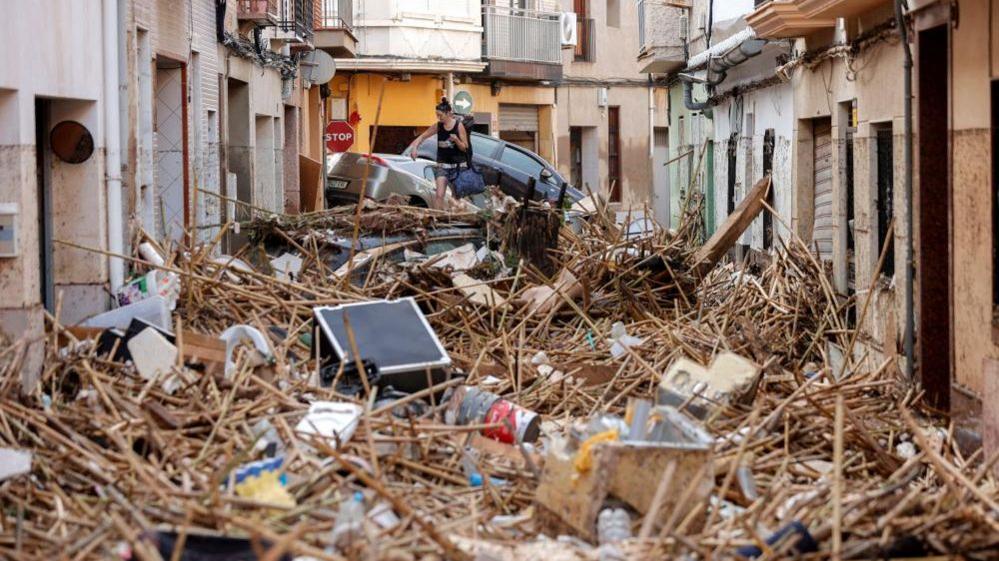British man, 71, dies after being rescued from Spain floods
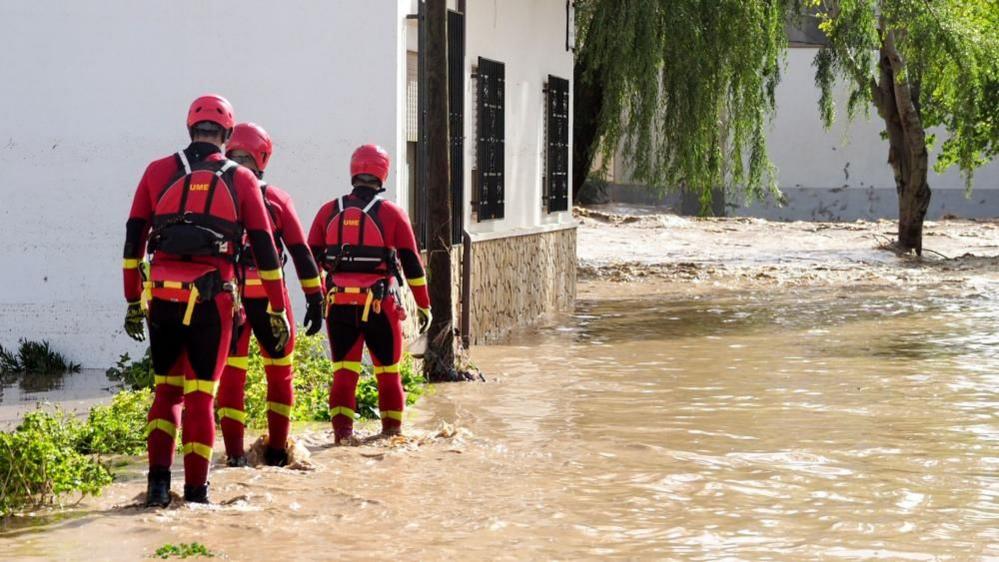
- Published
A British man has died hours after being rescued from his home on the outskirts of Málaga, Spain, after intense flooding hit parts of the country, local officials say.
The 71-year-old - who has not been named - had been taken to hospital after the rescue and was "suffering from hypothermia", according to the president of the Andalusian government in southern Spain.
He died on Wednesday after suffering "several cardiac arrests", Juanma Moreno said.
At least 158 people died after heavy rain and hailstorms triggered flash floods on Tuesday, according to Spanish authorities.
Some 155 of these deaths were recorded in the eastern city of Valencia, while another two died in the central Castilla-La-Mancha region.
There are fears the death toll could rise in the coming days as many people remain missing across the affected areas.
A UK Foreign Office spokesperson said: “We are providing support to the family of a British man who has died in Málaga.”
It has updated its travel guidelines, external for Spain in light of the flooding, advising visitors from the UK to check weather warnings before they travel.
Local officials in the town of Chiva, near Valencia, said it was "impossible" to put a final figure on the number of people who have perished.
More than a year's worth of rain fell in the area over just eight hours on Tuesday.
Images from the region show neighbourhoods destroyed and cars piled up in the street, as residents and rescue crews work to control the damage.
Meteorologists believe the extreme weather is due, in part, to the Dana phenomenon - when a pool of cold air interacts with an area of low pressure to create an intensely unstable atmospheric environment.
While studies suggest Dana events occur many times each year in the western Mediterranean, the intensity of such rainfall events appears to be increasing due to climate change.
Deadly floods leave trail of destruction in southern Spain
'We felt completely helpless'
More than 1,000 troops were deployed to help with rescue efforts on Wednesday.
But many crews struggled to reach affected towns due to flooded roads and downed power lines, which have also cut off local residents from their jobs and loved ones.
Julianne Stockport volunteers at an animal sanctuary in Carlet, Valencia - an area which was badly damaged by the flooding.
The 43-year-old, who moved from the UK to Spain six years ago, has been unable to reach the shelter due to severe flooding on the roads.
"I've never known devastation like what we're seeing at the moment," she told the BBC.
Volunteers went to great lengths to prepare the shelter - which houses more than 80 dogs and cats - for the storm.
As the downpour hit, Ms Stockport received a national alert telling her to stay at her home in Gandia, so she could not make the 45-minute drive to ensure the animals, and her friend Grace who runs the shelter, were safe.
"We felt completely helpless," she said. "Later in the day we couldn't make contact at all. We were so worried about her and the animals' safety."
When the storm passed, Grace told Ms Stockport that some of the shelters' roofs were blown off but "by some miracle" all the animals were safe.
"It was like someone was watching over them," said Ms Stockport.
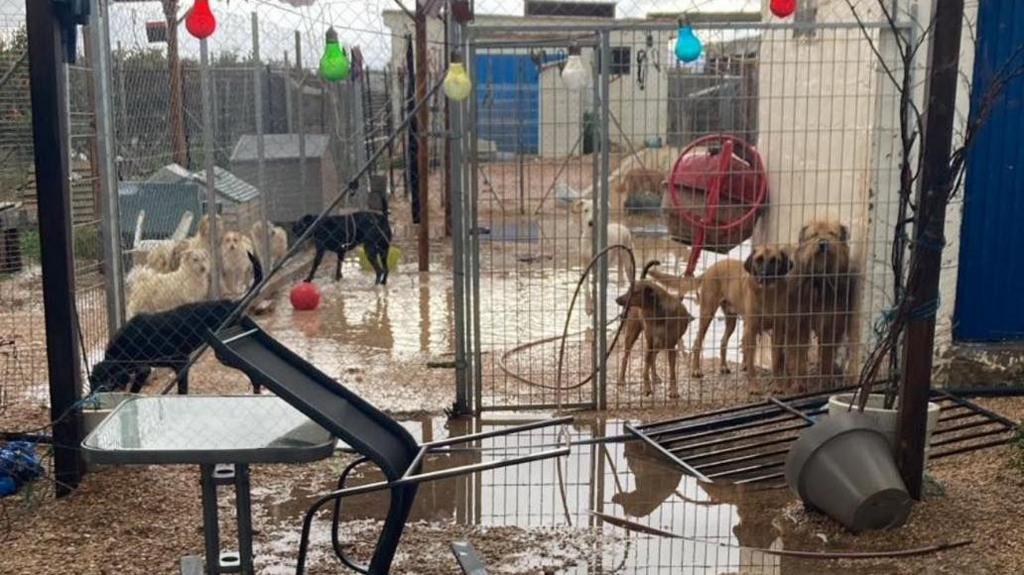
'We're forever grateful we made it out'
Elizabeth Hunt, 41, and her husband, Vitalij Farafonov, 44, were caught in flash flooding while driving on a road near Valencia on Tuesday night.
As water rapidly rose around them, Ms Hunt climbed out of the window to tether their car to a motorway barrier, as she feared they would be washed away.
The couple, who are originally from the UK but now live in Luxembourg, had left their two boys, aged seven and 13, in Barcelona with Ms Hunt's parents while they explored Gandia, Valencia and Castellón de la Plana.
“I had to put in a call to my sister and give her our location as we could not panic my parents who were with the kids," she told the BBC.
After a long night navigating flooded roadways, damaged bridges and debris, the couple made it back to their hotel in the mountains.
"Having seen the level of destruction, we now realise how lucky we were not to have been in a built up area where the water had nowhere to go," Ms Hunt added.
“We will be forever grateful that we made it out and back to our children.”
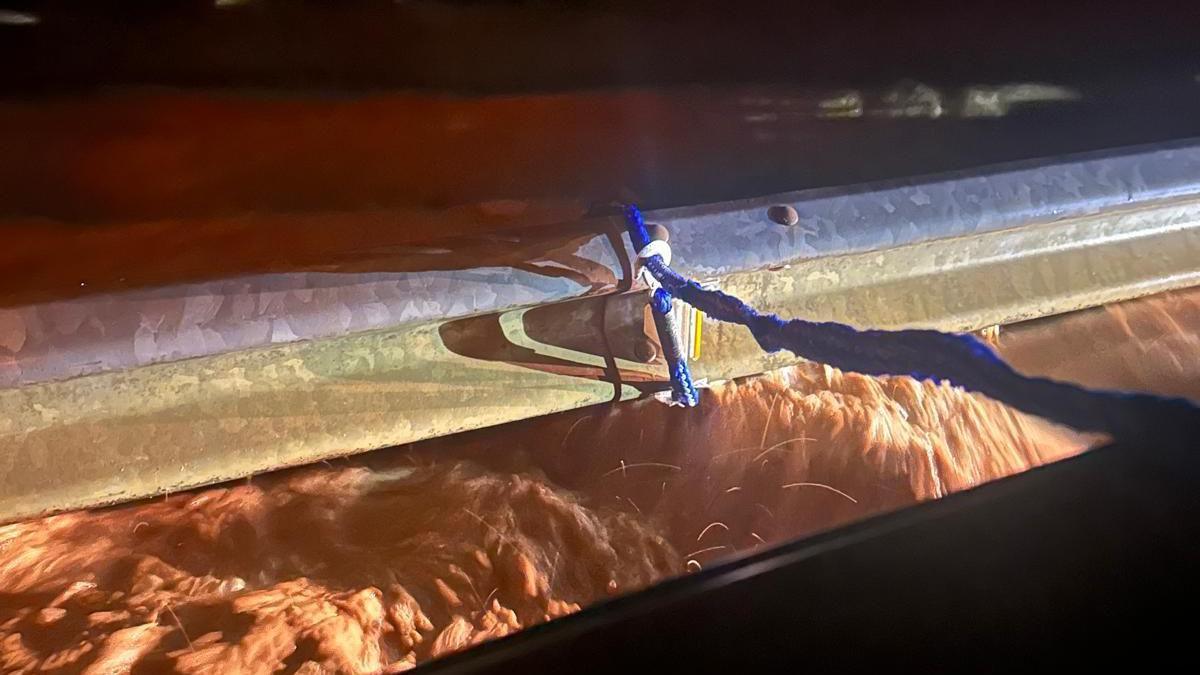
Elizabeth Hunt tethered her car to a motorway barrier as flood water rushed past.
Rescue efforts ongoing
In a visit to a crisis centre, Spanish Prime Minister Pedro Sánchez urged people in flood-hit regions to stay at home and said the emergency was "not over".
"Right now the most important thing is to save as many lives as possible," he said.
He added that the government would help the community "for as long as necessary and with all possible resources".
It comes as the Spanish government declared three days of national mourning.
Meanwhile, work continued in Valencia on Thursday to clear the city's streets of piled up cars, and to search for people still unaccounted for.
Some disaster relief authorities faced criticism for being too slow to issue warnings during the worst of the weather.
Get in touch
Are you in Spain? If it's safe to do so, please share your experiences.
Related topics
- Published30 October 2024
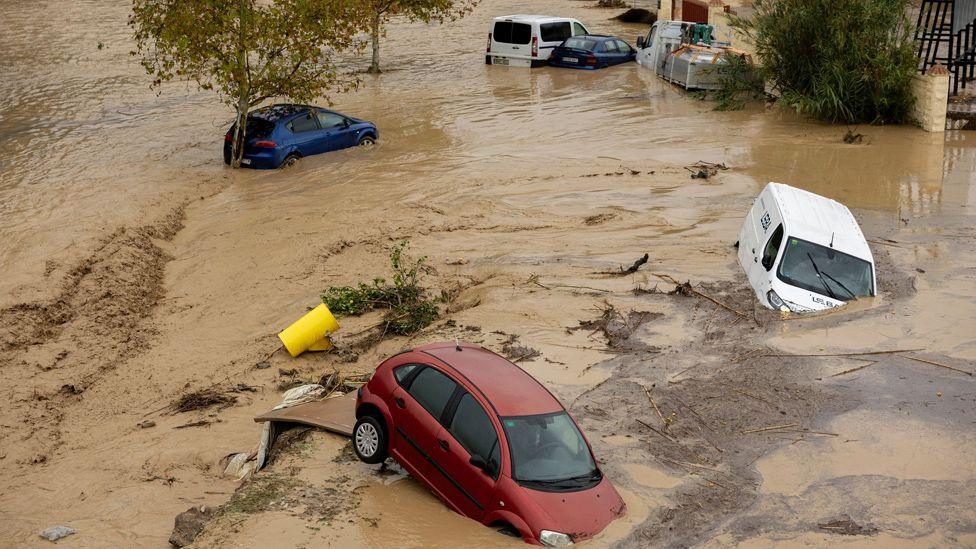
- Published30 October 2024
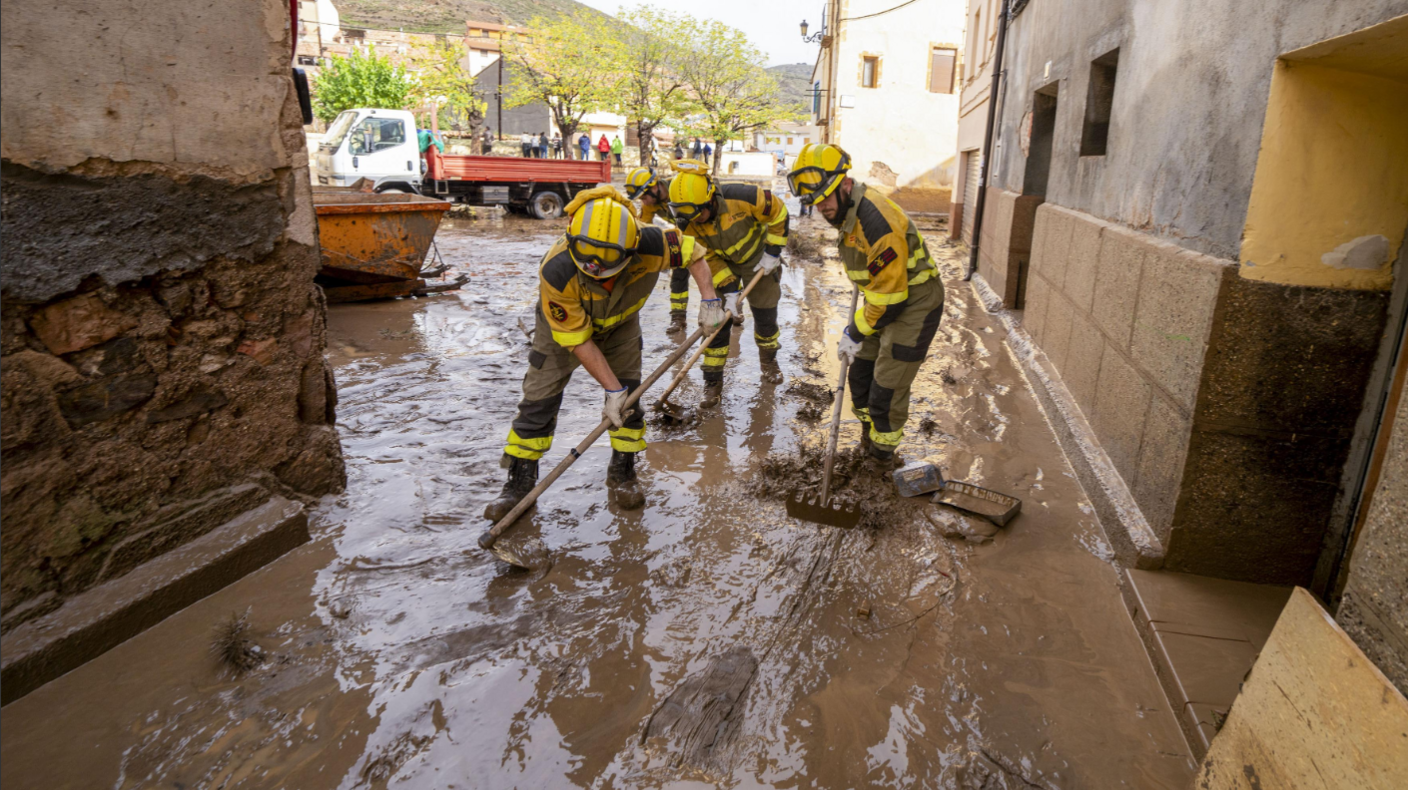
- Published30 October 2024
